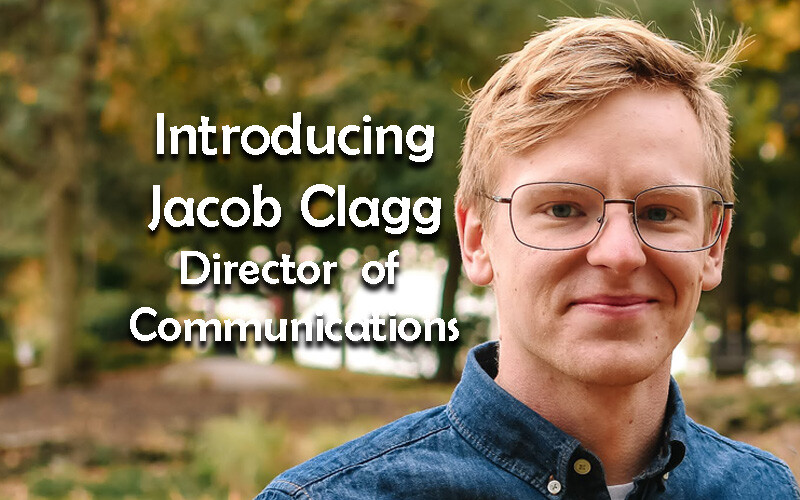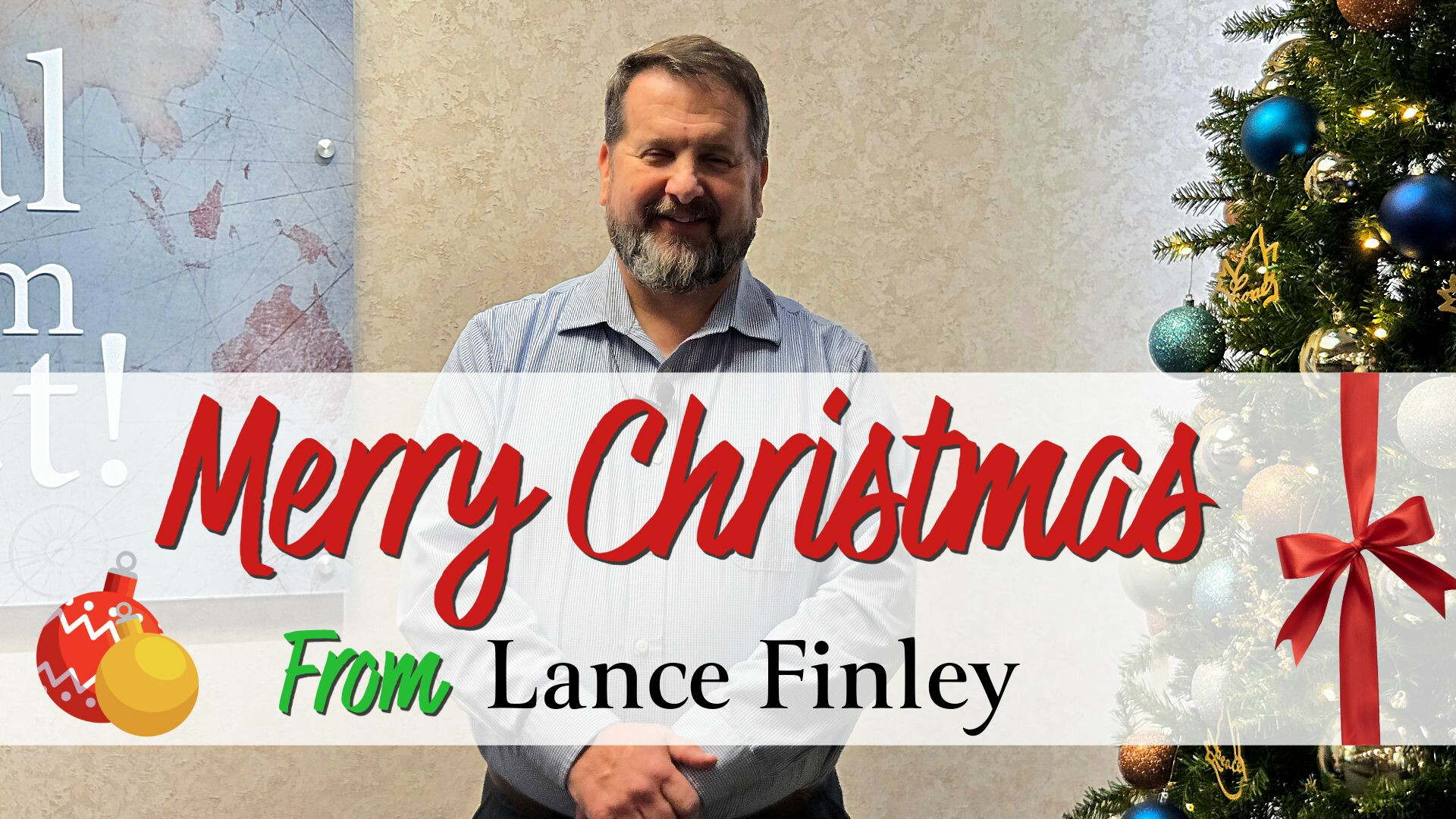
I’ve got some exciting news to share today. I’m happy to introduce you all to Jacob Clagg as the Director of Communications for the CGGC. Jacob started his work with us this past week and I wanted to give him the opportunity to introduce himself to you all and tell a little bit about himself and his approach to communications. Over the next few months, you’ll be seeing and hearing more from him as he helps us tell the story of what God is doing through the work that we all share together.
Christ’s Peace,
Lance
It wouldn’t be a stretch to say that I am somewhat fresh faced around here. I’m not quite new, having been the Tech Assistant at the Great Lakes Conference since 2020, and an Interim-Pastor at a local CGGC church for about a year, but I certainly wouldn’t blame anyone for having no idea who I am. That being said, I’m grateful to Lance for giving me the opportunity to introduce myself. My name is Jacob Clagg and I’m a 27-year-old child of God, husband to one Donna Clagg, and father to two wonderful little girls (3 years and 7 months, respectively). I’m a University of Findlay and a Winebrenner Seminary graduate (MDiv). I’m a preacher, teacher, public speaker, writer, Bible researcher, website designer, computer builder, human-male. On the side I’ve been asked to teach a course for WTS at Marion Correctional Institute, and in the fall, I will be pursuing a Masters of Rhetoric and Writing degree back at the University of Findlay.
All these experiences, both past and future, are preparing me for this role in the CGGC. I step into this position with both genuine excitement and frank trepidation. In the years since coming into contact with the Churches of God, I’ve become quite fond of this denomination; of its theology and its history, of what and who it stands for, and of the pastors on the ground doing God’s work in the here and now. That is to say it’s an honor to be able to work alongside many talented, knowledgeable pastors, adjacent to some of my own mentors, and in the shadow of historical figures who helped shape this denomination.
Communication is always complicated, even the average conversation about the weather has nuances that go far beyond the words we speak. What we say is often only as important as how we say it. What we say is often not what people hear. And what people hear is interpreted less by our intentions as speakers, and more by their preconceptions as receivers. So, at the outset, I would like to establish what I see as my philosophy of communication. Complicated in execution, but stated simply, my philosophy of communication is: Know Your Audience. Or, as the younger generations might say, “Read the room, man.”
The dynamics of human communication necessitate knowing your audience. The brainiest college mathematics professor would probably do a terrible job if suddenly thrust into a first-grade public school classroom. Not because the professor doesn’t know the content well, (indeed, they may have taught it one hundred times!) but because their content wasn’t tailored to their audience. This is all terribly obvious, of course, but it’s also profoundly biblical.
When we come to the text of the Bible, we find that the documents were all clearly written to a particular people, time and place. By which I mean, not us! When Paul writes to the church in Corinth, he deals with the problems of that church, at that time. Paul knew his audience. He loved them, and struggled with them, and when he wrote to them, he speaks in a way that is at times confounding to us because, well, we aren’t the first century Corinthian church! The author of Hebrews brilliantly relates to his (or her, perhaps) Jewish audience by explaining how Jesus fits clearly into the full breath of ancient Jewish history. The gospel of Matthew begins with an arduous to read, but incredibly important genealogy for the original audience that we sometimes gloss right over. And John’s theology heavy gospel is so different from the synoptic gospels because he has a different audience, with different needs, in mind.
The job of the modern preacher is then not to simply tell the congregation what the Bible says (they could just read it for themselves, if only), instead, the preacher pulls from the text (exegetes) the original author's intended meaning, and then applies that meaning to our modern context. And modern preachers do this (when they do it well) by knowing their audience. They probably don’t dive deep into the nuances of Arminian versus Calvinistic views on predestination from the Sunday pulpit, unless they know their congregation can handle it (and may God bless you if you do).
It is my job then, as director of communications, to know you well and to tell the story of this denomination in a way that is not only true, but also biblically engaging, and biblically contextual. I only do that, I suspect, by being as good of a listener, reader, and information sponge, as I am a speaker, writer, and video editor. As I come to grips with this new role, I ask for your grace. I’m honored to serve the CGGC, and as always, I’m all ears.
CGGC eNews—Vol. 16, No. 18





Login To Leave Comment